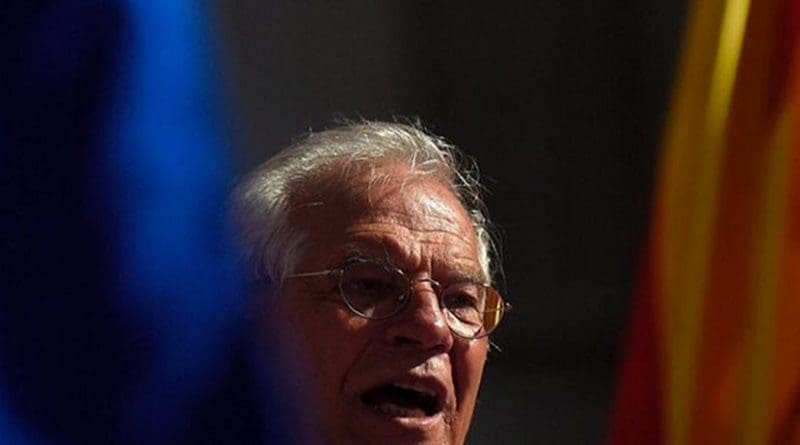EU’s Chief Diplomat Takes Position Against Readmitting Russia To G7
By EurActiv
By Alexandra Brzozowski
(EurActiv) — The EU’s chief diplomat, Josep Borrell, rejected on Tuesday (2 June) the idea floated by the White House over the weekend to reinvite Russia to this year’s G7 gathering hosted by the US, saying the conditions had not been met.
“The G7 cannot become G8 (…) until Russia changes its course. This is currently not the case,” Borrell told reporters in Brussels, stressing that “cooperation amid like minded partners is crucial more than ever”.
His remarks came after US President Donald Trump said on Saturday (30 May) he would postpone a Group of Seven summit he had hoped to hold next month until September or later and expand the list of invitees to include Australia, Russia, South Korea and India.
Trump said the G7 Group of advanced economies has become “very outdated” and should transform as the “G10 or 11 vs G1”, a reformed club to unite against China.
“Changing the format of G7 is not the prerogative of the chair (of the meeting),” Borrell added in a swipe against Trump.
The other six G7 members – France, Germany, Italy, the UK, Canada and Japan – remain skeptical about the inclusion of Russia, which was excluded from the then G8 by Trump’s predecessor Barack Obama in 2014 over its annexation of Crimea, with Britain and Canada having already spoken out against the idea of readmitting Russia.
The EU is not a member of G7, but the Council and Commission chiefs are attending its summits as guests.
“We will look at the detail of what the US is proposing. It is customary for the country that holds the G7 presidency to invite other leaders to participate as guests in the summit,” a spokesman for UK Prime Minister Boris Johnson said on Monday (2 June).
“However, Russia was removed from the G7 group of nations following its (2014) annexation of Crimea and we are yet to see evidence of changed behaviour which would justify its readmittance … We wouldn’t support it being readmitted as a member of the group,” he added.
Russia still holds the annexed territory and various G7 governments have rebuffed previous calls from Trump to readmit Moscow.
Normalisation of relations between the EU with Russia is connected with Ukrainian reconciliation based on the principles of the 1975 Helsinki Final Act and fulfilment of the Minsk agreements, Borrell reiterated last week during a joint EU-UN cooperation session in the United Nations Security Council.
According to Borrell, “the illegal annexation by Russia of the Crimean peninsula and the unfulfilled commitments of Minsk have brought a major disruption […] in EU-Russia relations” and “support for the national sovereignty and territorial integrity will remain key elements of the relationship between the EU and its Eastern partners.”
“The principles enshrined in Helsinki cannot be forgotten while working for a cooperative, more secure and cohesive European continent,” Borrell said.
Russia’s hack
In what could be the first sanctioning under the EU’s cyber sanctions regime, EU diplomats are this week also meant to work on sanctions against the culprits responsible for the cyberattack on the German Bundestag in 2015.
Asked if the work on such sanctions is in progress and when a decision could be expected, Borrell dodged the question, saying he “cannot share any information at this moment”.
Sanctions are decided by the Council where the 27 EU member states sit, by unanimity.

